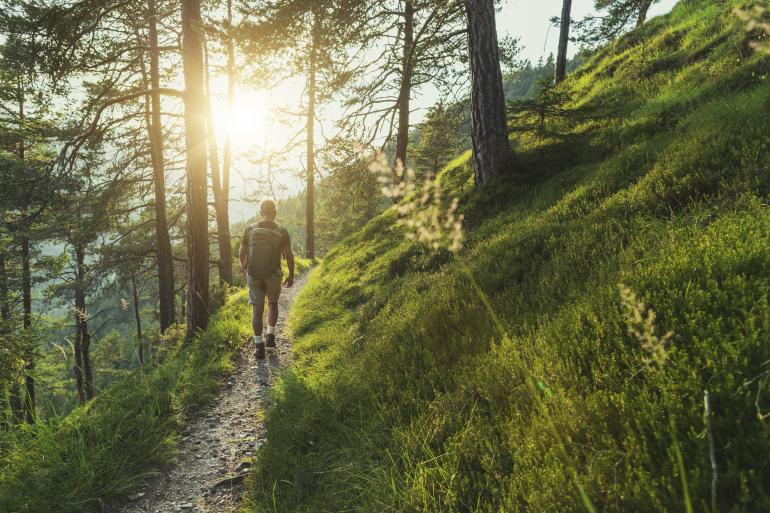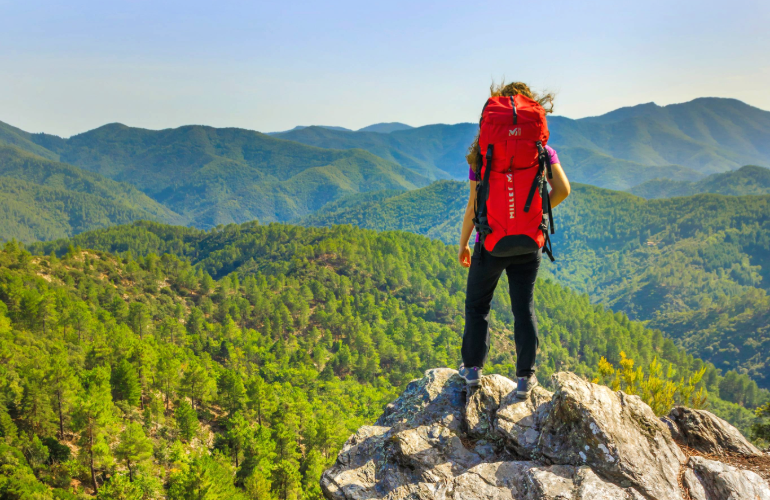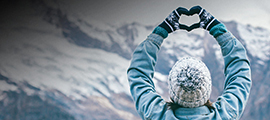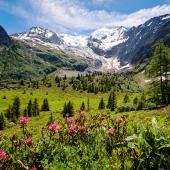Preparing your backpack for a day of hiking

Why is it essential to pack your backpack properly?
While hiking, anything can happen: a sudden change in temperature, intense sun, hostile insects or snakes... not to mention all the little troubles hikers face, from blisters to sprains to minor stomach issues. Today, it's easy to find the necessary gear to handle any situation without overloading your backpack.
What should you prioritize?
To pack a useful day bag, you need to consider six aspects of a trekker's life: health, hygiene, clothing, food, hydration, and of course, enjoyment. Some items are indispensable, like sunscreen, cereal bars, a water bottle, a camera... For the rest, you need to have a good understanding of the environment you are going into and know yourself well: someone allergic to bee stings, for example, would be wise not to forget their Aspivenin and antihistamine!
What accessories should you take in all circumstances?
Regardless of the destination, there are always a few must-have accessories: a knife, a cotton scarf, a headlamp, one or two plastic bags to use as trash bags, a lighter for burning waste, tweezers to remove splinters, and a pair of soft, lightweight shoes to rest your feet in case of overheating. For more demanding outings, you should also bring compression bandages, a satellite phone for remote treks... and sometimes even a Thermos for tea or coffee!
Are there any rules for packing your items?
It's best to place different accessories in plastic bags, particularly papers and spare clothes. To distribute the weight evenly and avoid unnecessary back pain, follow the "three-layer" rule: place light items at the bottom and top, and heavier items in the middle.

Checklist
Health
- Bandages, blister plasters, compresses, antiseptic.
- Water purification tablets.
- Sunscreen.
- Mosquito repellent.
- Eye drops.
- Aspivenin (for insect bites).
- Arnica capsules or stick.
Food
- Picnic (e.g., salad, sandwich, cheese, fruit).
- Utensils (a multi-purpose Swiss knife is ideal).
- Knife.
- Snacks (cereal bars, dried fruits, fruit jellies, almond paste, candies, etc.).
- One or two plastic bags (to avoid leaving trash behind).
- Lighter (to burn trash).
Clothing
- Rain cape (if the weather is uncertain).
- Spare T-shirt.
- Fleece jacket.
- Waterproof and breathable windbreaker.
- Hat, cap, or beanie.
- Neck protection (scarf, neck warmer, etc.).
- Spare sunglasses.
- A pair of gloves (essential for winter mountains... and often useful even in summer at high altitudes).
- Waterproof over-pants (depending on the destination).
- A pair of spare shoes or sandals (light and flexible, to rest the feet in case of overheating, during breaks, or on less rugged terrain).
Miscellaneous
- Mobile phone.
- Headlamp.
- Camera.
- Binoculars.
Hydration
- Water bottle or hydration bladder (1 to 2 liters, depending on the destination).
- Water and/or energy supplements.
Hygiene
- Hand sanitizer.
- Toilet paper.
- Tissues (cloth ones reduce waste volume).













